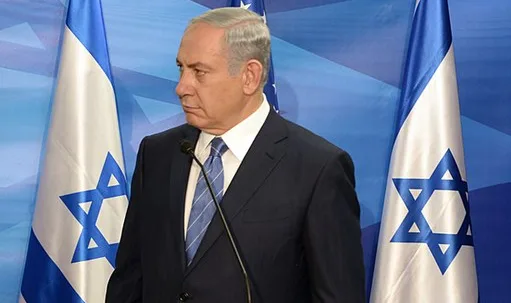Hamas calls on the US to push israel for a ceasefire deal, while Netanyahu asserts no current agreement is imminent and continues to face domestic and international pressure
On September 5, 2024, Hamas intensified its demands for a ceasefire by calling on the United States to apply substantial pressure on Israeli Prime Minister Benjamin Netanyahu. Khalil al-Hayya, Hamas’s lead negotiator based in Qatar, urged Washington to “abandon their blind bias” towards Israel and exert “real pressure” on Netanyahu’s government to facilitate an agreement on Gaza.
Netanyahu, however, maintained that no deal is in the making. In a statement to US media, he emphasized that while the situation remains complex, Israel is committed to working towards an agreement, though significant hurdles remain. Netanyahu has stressed the necessity of retaining control over the Philadelphi Corridor, a strategic area along the Egypt-Gaza border, to prevent arms smuggling to Hamas.
Embed from Getty ImagesHamas criticized Netanyahu’s position, accusing him of using the negotiations to prolong the conflict. The group asserts that a ceasefire agreement is already in place, having been outlined in a truce proposal by President Joe Biden several months ago. Hamas warned against being misled by Netanyahu’s strategy, suggesting it aims to undermine efforts to end the violence.
US Secretary of State Antony Blinken has expressed hope that a proposal could bridge gaps between the warring sides, stating that “90 percent is agreed” on the proposed deal. Blinken emphasized the need for both parties to finalize the remaining issues to achieve a ceasefire.
Domestic pressure on Netanyahu has escalated following the deaths of six hostages from Gaza, leading to protests and criticism from Israelis who accuse him of failing to secure a timely ceasefire. Demonstrators in Tel Aviv, including relatives of the hostages, have called for decisive action and concessions from the government.
Key mediator Qatar has criticized Israel’s approach, accusing it of attempting to distort facts and mislead international opinion. Qatar’s foreign ministry warned that such tactics could jeopardize peace efforts.
The violence that erupted following Hamas’s attack on October 7, which resulted in 1,205 Israeli deaths, has led to a severe humanitarian crisis. Israeli counterattacks have caused significant casualties, with Gaza’s health ministry reporting at least 40,878 deaths, predominantly among women and children.
In the West Bank, Israel’s Defense Minister Yoav Gallant has called for a robust military response against Palestinian militants, targeting several cities and refugee camps. The Israeli military’s recent operations have resulted in numerous Palestinian fatalities, including a 17-year-old whose body was returned to his family after medics were initially denied access.
Humanitarian Impact:
The ongoing conflict has exacerbated Gaza’s dire humanitarian situation. The destruction of infrastructure has led to a polio outbreak, prompting a large-scale vaccination campaign. The World Health Organization reports that nearly 200,000 children in central Gaza have received the first dose, with further efforts underway in the south and planned for the north.
Political Perspective: Hamas’s call for US intervention highlights the complex interplay between international diplomacy and regional conflicts. The pressure on the US to act against Israel reflects broader geopolitical dynamics and the challenge of balancing support for allies with humanitarian concerns.
Social Perspective: The situation underscores the severe human toll of the conflict, particularly on civilians. Protests and domestic pressures within Israel illustrate the growing public demand for resolution and accountability, while the humanitarian crisis in Gaza continues to draw global attention.
Racial Perspective: The conflict and humanitarian crisis involve significant ethnic and national dimensions, with repercussions for various communities involved. The international response, including calls for ceasefire and aid, reflects broader concerns about racial and ethnic justice.
Gender Perspective: The impact of the conflict on women and children is particularly severe, with reports indicating high casualties among these groups. The vaccination drive’s focus on children highlights efforts to mitigate the specific effects of the conflict on young populations.
Economic Perspective: The ongoing violence and humanitarian crisis in Gaza have significant economic implications, including the destruction of infrastructure and the disruption of essential services. The conflict’s broader impact on regional stability also affects economic conditions and development prospects.
